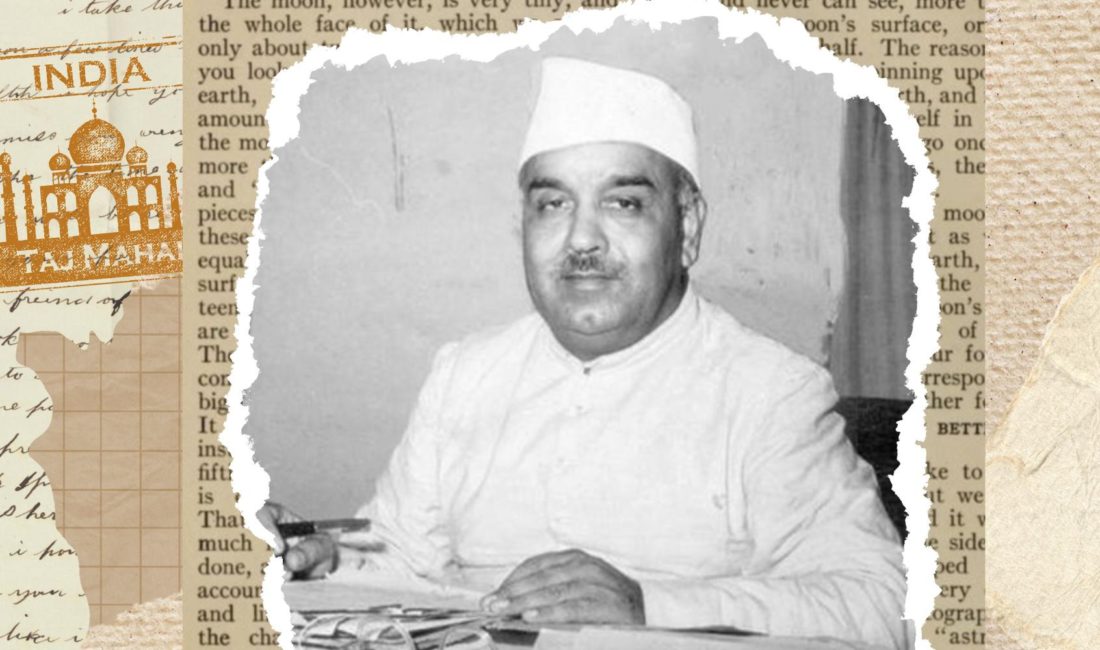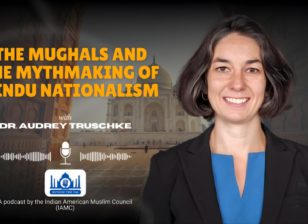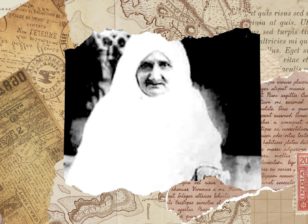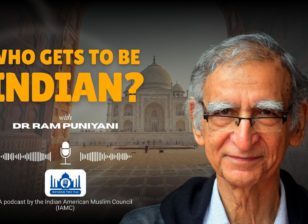Rafi Ahmed Kidwai: Architect of Change and Pillar of India’s Independence
By Afroz Alam Sahil
In 1919, the British enacted the Rowlatt Act, a draconian set of laws aimed at stamping out growing calls for Indian independence by cracking down on press freedoms, enabling wanton arrests, and allowing prisoners to be tried without due process. In the aftermath, protests erupted across India, to which police responded with baton charges and gunfire against the crowds. In Punjab, communication with the rest of India was severed, and when Mahatma Gandhi attempted to enter the province, he was forcibly removed from his train.
When protests against the Rowlatt Act began across India, a young man took an active part alongside his friends in the cities of Lucknow and Barabanki—acts considered dangerous and rebellious at the time. The British Deputy Commissioner and the Commissioner of Faizabad warned his father to restrain his son’s political involvement. However, neither the young man nor his father complied with the order.
This young man was Rafi Ahmed Kidwai, who would go on to become a prominent politician, dedicated socialist, and active participant in India’s independence movement.
Early Life and Activism
Rafi Ahmed Kidwai was born on 18 February 1894 into a middle-class landowning family in Masauli, a town in Barabanki district, Uttar Pradesh. He was the son of Sheikh Imtiaz Ali (also known as Lala Mian) and descendant of a prominent family of landlords. He received his early education at home and later completed high school in Barabanki. For higher studies, he attended the Mohammedan Anglo-Oriental College in Aligarh, graduating in 1918. He then enrolled in a law program (LLB), but at Mahatma Gandhi’s call, he gave up his studies to join the Non-Cooperation Movement.
Sheikh Imtiaz Ali was a government employee, and under the strict regulations imposed by the British authorities at the time, it was a risk for the son of a government servant to attend a session of the Indian National Congress.
Despite these challenges, Kidwai emerged as a key member of both the Indian National Congress and the Khilafat Committee, giving up his law studies to join the Non-Cooperation Movement. Following this, he traveled on foot to many villages in his home district of Barabanki, establishing local branches of the Congress and the Khilafat Committee and effectively leading the Khilafat and Non-Cooperation Movement single-handedly in the district. His success was so notable that Barabanki became the only district in all of Uttar Pradesh that government officials considered highly dangerous. Many government employees resigned in solidarity, the most prominent being his younger brother, Shafi Ahmed Kidwai, who left his post as Assistant Registrar of Cooperative Societies.
Both brothers were arrested and imprisoned, while their father faced severe reprimand from the British authorities due to their convictions. When asked to intervene, he refused, saying that he could not interfere in his sons’ political activities. Subsequently, the police conducted a thorough search of their ancestral home and auctioned off much of their property.
Relationship with Gandhi and the Nehru Family
Kidwai maintained close and cordial relations with the Nehru family as well as with Mahatma Gandhi. Both Gandhi and Motilal Nehru held him in high regard, and he was one of Jawaharlal Nehru’s closest friends. His closeness to Gandhi is evident from the letters Gandhi wrote to him.
For instance, in a letter to Jawaharlal Nehru dated 28 September 1933, Gandhi wrote, “…I had a long conversation with Rafi. He will tell you about it…” On 21 January 1934, he inquired about Kidwai’s condition. At a time when Gandhi was considering leaving the Congress, Kidwai helped devise a compromise that allowed him to remain, which Gandhi himself mentioned in a statement to the press on 17 September 1934.
Gandhi continued to correspond with Rafi Ahmed Kidwai and met him frequently. On 7 November 1934, he wrote to him at his Barabanki address regarding a program and demonstration. Later, on 1 August 1936, he responded to one of Kidwai’s letters. Correspondence with other leaders also indicates that Kidwai regularly met with Gandhi.
Political and Administrative Career
Kidwai’s administrative skills are evident from the political and administrative decisions he made, which had a lasting impact not only on his province but on the entire country. From 1926 to 1929, he served as the Chief Whip of the Swaraj Party in the Central Legislative Assembly. In 1930, when poor farmers in Rae Bareli were unable to pay taxes, he led a movement on their behalf, for which the British authorities sentenced him to six months in prison. Despite this, he continued to advocate for the rights of India’s poor.
In the 1937 provincial elections, the Congress Party emerged victorious, and Rafi Ahmed Kidwai was appointed Minister of Revenue and Prisons in the cabinet of Govind Vallabh Pant in Uttar Pradesh. During this tenure, he became known for his peasant and prison reforms in the first provincial government of the United Provinces, serving from 1937 to 1939. Notably, he was the only Muslim member of the Congress ministry in Uttar Pradesh during this period.
In 1946, he was appointed Home Minister of Uttar Pradesh, where he gained a reputation for effective administration. He was also deeply involved in the Quit India Movement of 1942. Over the course of the independence struggle, Kidwai was imprisoned five times for his commitment to the nation.
In addition to his political work, Rafi Ahmed Kidwai served as the director of the National Herald. In May 1942, he was arrested by the British authorities, prompting Gandhi to issue a statement to the press on 31 May 1942, demanding his release.
Role in Independent India
After India’s independence, Rafi Ahmed Kidwai was appointed Minister of Communications in Jawaharlal Nehru’s first cabinet, serving until 1952. During his tenure, he introduced several innovative initiatives, including the establishment of the night airmail service—an exceptionally challenging task at the time. His prominence is further reflected by the fact that only two Muslims were included in Nehru’s cabinet: Rafi Ahmed Kidwai and Maulana Abul Kalam Azad.
In 1952, he became the Minister of Food and Agriculture, a post he held until his death. In this role, he undertook pioneering efforts to reform and modernize the ministry, laying the groundwork for India’s future agricultural policies.
Death and Legacy
Kidwai passed away suddenly from a heart attack on the evening of 24 October 1954, shortly after returning home in New Delhi from addressing a meeting of the Delhi Pradesh Congress Committee. His death marked the loss of a devoted freedom fighter, visionary administrator, and a trusted & closest friend of India’s first Prime Minister, Jawaharlal Nehru. It is said that when Kidwai passed away, Nehru was deeply shocked. His death left a void in Nehru’s life that could never be filled. With Kidwai’s passing, Nehru lost not only a dear friend but also a trusted ally—someone whose place could not be replaced by anyone else.
Rafi Ahmed Kidwai’s life stands as a testament to dedication, courage, and vision. From leading grassroots movements to shaping India’s administrative and agricultural policies, his contributions continue to be remembered as vital to India’s struggle for independence and its early years as a sovereign nation.




